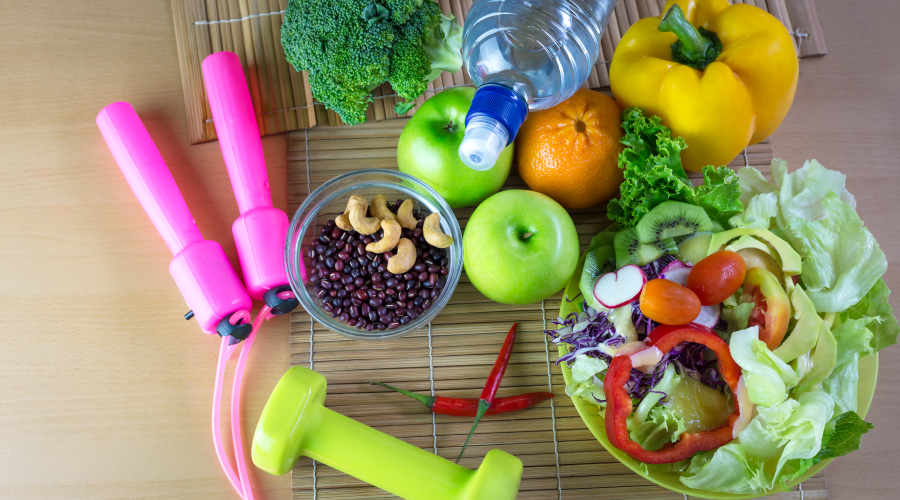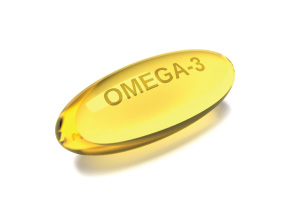

Making simple changes in your diet can help you prevent a host of health issues related to nutritional deficiencies. For most people, the word ‘diet’ creates a negative association, often thinking they may have to cut down on their favourite foods or reduce portions. However, smart dietary goals are more sustainable and will help you maintain a healthy way of eating for a longer period of time. The earlier you start following these dietary guidelines and learn how to modify them to suit various factors, like the foods that are easily available to you or specific fitness goals that you want to achieve, the better it is for you.
According to the World Health Organization, the increased availability of processed foods and a significant change in lifestyle have led to changes in dietary patterns as well. They are now more inclined towards convenience than consideration about dietary nutrition. Therefore, choosing dietary goals can help you eat better and live a healthier life.
How to Set Dietary Goals?
Dietary goals, in the simplest terms, are healthier choices with respect to your food. The idea is to create SMART goals which essentially means:
- Specific
- Measurable
- Action-oriented
- Realistic
- Time-framed
There are multiple factors that constitute a balanced diet, including individual characteristics like gender, physical activity levels, age, and lifestyle. Dietary recommendations also take into account cultural contexts, foods that are available locally and general dietary practices. Together, they form the basic principles of what a healthy diet should look like.
Universal Dietary Goals
Here are some goals that you should make a part of your daily routine, irrespective of your specific fitness preferences.
1. Add a Variety of Lean Protein Foods
Lean proteins are an important part of your diet, helping you achieve your fitness goals. These foods support you in building muscles and aid in speeding up the weight loss process. Proteins consume more calories to digest, preventing any excess from being stored as fat tissue. Lean cuts of meat are rich in protein and lower in fat content.
2. Opt for Whole Grains
While it is difficult to eliminate refined grains entirely when you are trying to consume diet foods, you can balance your intake. At least half the grains that you eat each day should be whole grains. It is a good idea to choose whole-wheat bread and brown rice instead of their refined counterparts. This will help you make the switch entirely with time. You can include whole grains like oats, wild rice, and buckwheat to your diet.
3. Include Fruits and Vegetables
This is one of the most important dietary guidelines that can optimise your intake of micronutrients. Fresh vegetables and fruits are the primary sources of multiple vitamins and minerals, so they should constitute at least half your plate in every meal. In order to get the complete spectrum of these nutrients, it is advised that you add fruits and vegetables of different colours to your diet. You can make it a ‘sub-dietary goal’ to include as many colours on your plate as possible.
4. Reduce Solid Fat Intake
Butter, cheese, meats, margarine, and shortening are all solid fats. In our regular diet, foods like baked goodies or processed foods are counted as some of the most common solid fat sources. In order to follow the right diet plan for healthy weight management, it is important to avoid these foods and switch to healthier alternatives.
Dietary Goals for Specific Fitness Preferences
Let’s take a look at some of the most common fitness goals:
- Weight loss
- Muscle Development
1. Weight Loss
The most important of all dietary goals when you are eating to burn fat or lose weight is to reduce your total calorie intake each day. Others include:
- Increase your consumption of high-quality proteins such as eggs, meat, fish, and poultry to feel well-satiated.
- To get your daily required carbohydrate intake, choose plant-based sources like beans, sweet potatoes, and unrefined rice.
- Do not go for a no-fat diet. Instead, choose sources of healthy fats like Omega-3.
2. Muscle Development
The diet foods that you choose for muscle development should provide you with the calories that you need to build your muscles. Gaining muscle mass requires a calorie-surplus diet.
- Try to consume at least 1g of protein per kilogram of body weight each day.
- Focus on the foods that you eat before and after training to prevent muscle fatigue.
- Drink more water to ensure that the protein you are consuming is metabolised efficiently.
These dietary goals are effective only when combined with a good exercise routine.
Conclusion
Dietary goals must be the ones that you can follow easily – only then will you be able to sustain them. If you are struggling with them, take the assistance of an expert who can give you not only a practical but also an effective plan.




